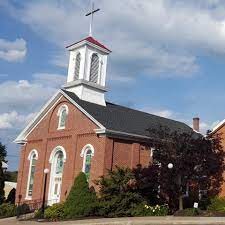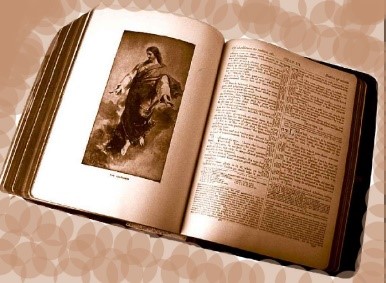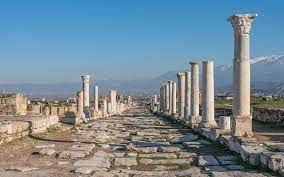Church of God, Seventh Day

The Church of God (Seventh Day) originally came from the Adventist body and the followers of William Miller. They rejected the visions and teachings of founder Ellen G. White, however, they continued to keep the Sabbath on Saturday, the seventh day of the week.
Gilbert Cranner, from Michigan, separated from the Adventists group that followed Ellen G. White in 1860. There was another group from Iowa who separated from the Adventists group in 1860. These two groups joined together in 1863.
The mission of the Church of God (Seventh Day) is to proclaim the Gospel and introduce others to the Lord Jesus Christ, and to teach others to obey the Word of God. All members are expected to nurture spiritual growth in all other believers.
The Church of God (Seventh Day) believes their church attendance provides them a lasting friendship with fellow Christians. They have an opportunity for worship, preaching, and studying the Bible together and this will strengthen their Church and its members in living for Christ.
The General Conference of the Church of God (Seventh Day) became incorporated in Missouri in 1899. The official office was located in Sanberry, Missouri up until 1950 when the official office was moved to Denver, Colorado.
History
The Church of God (Seventh Day) grew out of the split from the Seventh Day Adventist by two groups of believers from Michigan and Iowa in 1860. They joined together through a magazine publication called The Hope of Israel; the magazine is called the Bible Advocate today. This magazine publication promoted the doctrines of the Second Advent as well as the insistence of worshiping the Sabbath on Saturday, the seventh day of the week. The Hope of Israel magazine invited Christians to meet at conferences and camp meetings. Because of this publication, the new movement spread into Missouri and Nebraska by 1884.
The Adventist Movement centered on the expected return of the Second Coming of Christ which is predicted to rid the world of evil and replace the world with goodness and happiness.
William Miller was a Baptist preacher and started the Adventist movement in 1830 and 1840. He started the Millerites in North America. The Seventh Day Adventist was based on the beliefs of William Miller who predicted the return of Christ would be between 1843 and 1844. This was the beginning of the Millerite movement. William Miller started preaching in 1831 and based his preaching on Daniel 8-9. He believed that 2,300 years would pass from the time of the commandment to restore and rebuild Jerusalem to the Second Coming of Jesus Christ. The specific date for the Second Coming of Christ was March 21, 1843 to October 22, 1844. The deadline came and went and Christ did not return and the “Great disappointment” transpired. There were two fractions that came from the Millerites; the Seventh-day Adventist and the Jehovah Witnesses.
Ellen Gould White is credited as the founder of the Seventh-day Adventist Church. The writings of Ellen G. White are believed by the Seventh-day Adventists Church as being the source of truth that provides the church guidance and instruction.
Ellen G. White, then Ellen Harmon, was put in a coma for three weeks when she was hit in the face by a rock when she was nine years old. She never fully recovered and had black-outs that came on suddenly even when she was in the middle of a conversation.
Her family became involved in the Millerite movement in 1840 when Ellen was 12 years old. She was traumatized by the lectures of William Miller and spent many nights in tears and prayers for months. The Methodist church eventually excommunicated her and her family. Ellen started having visions after the Great Disappointment of 1944. These visions lasted from a few minutes to hours.
The visions Ellen had were always surrounded in bright lights, and she would be in the presence of Jesus or angels. She would be shown historical and future events on earth, in Heaven and even on other planets. Her first vision showed her and the Adventist people all following Jesus as they marched to Heaven. Soon Ellen G. White was considered to be the messenger of the Lord
The Church of God (Seventh Day) was a part of the Adventist movement. Many members rejected the visions of Ellen G. White and formed another group. This splinter group were led by Enos Easton, Samuel Davison, and Gilbert Cranner .
The differences between the Church of God (Seventh Day) and the Seventh-day Adventists are in the role and the writings of Ellen G. White. She is regarded as a true prophetess by the Seventh-day Adventists Church. The Church of God (Seventh Day) believes Ellen G. White taught a lot of the truth, but her truth was also mixed with errors. They do not accept Ellen White or her writings to express the Spirit of Prophecy.
Some of the points that The Church of God (Seventh Day) believe and the Seventh-day Adventists do not believe are: The Church of God (Seventh Day) believe the provision for salvation was completed when Jesus died, rose from death, and returned to heaven, in contrast to the Seventh-day Adventists belief that it occurred in 1844. They also believe the Seventh-day Adventists are wrong in teaching the cleansing of the sanctuary and that the investigative judgments are in error.
The Church of God (Seventh Day) believes the earth will be inhabited by the saints during the 1,000 year reign by Christ. The Seventh-day Adventists believes the earth will become desolate.
The Church of God (Seventh Day) does not put any other importance of any writings other than the Bible as compared to The Seventh-day Adventists, who accepts the Bible and the writings of Ellen G. White.
The Church of God (Seventh Day) does not celebrate Christmas and Easter. They accept and celebrate only one holy day and that is Passover. They oppose the observance of any of the traditional holidays of the Christian world.
Belief
The Church of God (Seventh Day) believes the Bible is the only authoritative Word of God. There is no other writing with such divine origin for Christian faith and practice.
The Church of God (Seventh Day) believes God is the Father, Almighty Creator, Loving Provider, Eternal King, and Judge of the universe. They believe that Jesus Christ is the preexistent Son of God; He is the Savior, Lord, and eternal Redeemer of all who truly believe. They believe the Holy Spirit is the presence of God in believers. The Church of God (Seventh Day) believes the Holy Spirit converts, teaches truth, prompts obedience, bears fruit, distributes gifts, and empowers witness.
The Church of God (Seventh Day) believes all humans are sinners by birth and are subject to death. Salvation is the forgiveness of sins and it is a gift of eternal life given by the grace of God. It is achieved by the death and the resurrection of Jesus Christ and is received by faith. They believe saving faith must include repentance, obedience, and good works through love.
The Church of God (Seventh Day) believes all people who trust Jesus Christ and is obedient are all members of the spiritual body and the church of God. They believe Jesus Christ instituted two ordinances for the Church of God (Seventh Day) that will confirm the faith in Jesus; Baptism which is by immersion, and the Lord’s Supper in which feet washing is a part.
The Church of God (Seventh Day) believes Jesus Christ will return from Heaven at the end of this age. They believe the dead shall be raised up from their sleep in their graves, and all humans shall be judged according to their works. They believe the righteous shall be changed to immortality and will live forever with the Lord. They believe the wicked shall be consumed in the lake of fire. They believe there will be a new heaven and a new earth for the home of the redeemed for all eternity.
The Church of God (Seventh Day) believes and observes the Law of Moses and they believe it should be followed by all Christians. The Church of God (Seventh Day) celebrated the Lord’s Supper on Nisan the first month of the Hebrew calendar on the fourteenth day of the month because that Jesus celebrated it first at Passover. They forbid observing any of the pagan days such as worshiping on Sunday, Christmas, Easter, Lent and Halloween. They do not participate in wars or serving in the military, the do not recognize divorce, they do not use alcohol, drugs, tobacco; they do not eat fish or foul and considers it unclean meat and they do not tithe. They do not celebrate Christmas because they believe Jesus was born in early or middle autumn rather than on December 25th and the celebration of the birth of Jesus is not appointed in the Bible.
Cite Article Source
MLA Style Citation:
Holstein, Joanne “Church of God, Seventh Day:.” Becker Bible Studies Library Jan 2006.<https://guidedbiblestudies.com/?p=2646,>.
APA Style Citation:
Holstein, Joanne (2006, January) “Church of God, Seventh Day:.” Becker Bible Studies Library. Retrieved from https://guidedbiblestudies.com/?p=2646,.
Chicago Style Citation:
Holstein, Joanne (2006) “Church of God, Seventh Day:.” Becker Bible Studies Library (January), https://guidedbiblestudies.com/?p=2646, (accessed).


